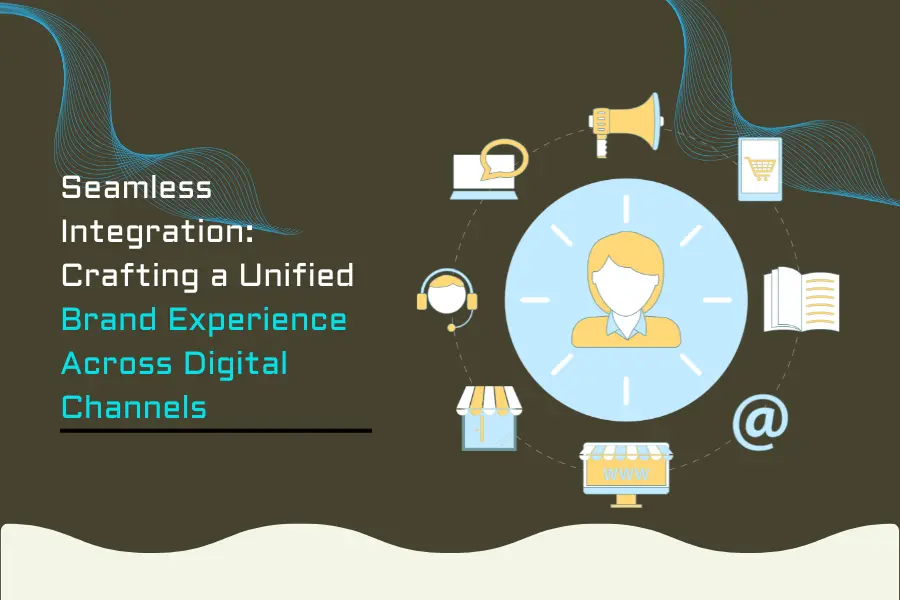Seamless Integration: Crafting a Unified Brand Experience Across Digital Channels
In today’s fragmented digital landscape, creating a unified brand experience across various channels is essential for building strong customer relationships and brand loyalty. Seamless integration ensures that customers have a consistent and cohesive experience, regardless of the platform they use to interact with the brand. Here’s a detailed explanation of how to craft a unified brand experience across digital channels.

1. Consistent Branding Elements
Consistency is the cornerstone of a unified brand experience. This involves maintaining uniformity in visual elements such as logos, colors, typography, and imagery across all digital channels. Whether customers are browsing a website, interacting on social media, or reading an email, the look and feel should be unmistakably representative of the brand. Establishing and adhering to brand guidelines helps ensure that all marketing materials and touchpoints reflect the same identity.
2. Integrated Marketing Strategy
An integrated marketing strategy aligns messaging, campaigns, and objectives across all channels. By coordinating efforts, brands can ensure that each channel complements and reinforces the others, creating a seamless experience. This involves synchronizing content calendars, aligning promotional efforts, and ensuring that campaigns are consistent across email, social media, websites, and other digital platforms. Tools like customer relationship management (CRM) systems and marketing automation platforms can help streamline this process.
3. Omnichannel Customer Engagement
Omnichannel strategies focus on providing a seamless customer journey across all touchpoints. This means that whether a customer starts their interaction on a mobile app, continues it on a desktop website, or seeks support via social media, their experience should be smooth and uninterrupted. Integrating customer data and leveraging AI-driven tools can help in tracking interactions across channels, allowing brands to deliver personalized and relevant experiences based on the customer's history and preferences.
4. Personalized Customer Experiences
Personalization is key to engaging customers effectively. Using data analytics and AI, brands can tailor content, recommendations, and communications to individual users. Personalized experiences make customers feel valued and understood, fostering loyalty. This can be achieved by integrating data from various touchpoints to create a comprehensive view of each customer, enabling more targeted and relevant interactions.
5. Unified Customer Support
Providing consistent customer support across all channels is crucial for a unified brand experience. This involves ensuring that customers can access support through their preferred channels, whether it’s via live chat on a website, direct messages on social media, or email. Support agents should have access to a unified view of customer interactions to provide informed and efficient service. Chatbots and AI can assist in offering instant support and escalating complex queries to human agents.
6. Cross-Channel Analytics
To understand and improve the unified brand experience, it’s important to measure performance across all channels. Cross-channel analytics provide insights into how customers interact with the brand at different touchpoints and how these interactions influence their journey. This data helps in identifying areas for improvement and ensuring that all channels work together harmoniously to achieve business goals.
Active Events
From Insights to Impact: Proven B2B Marketing Strategies for Scalable Success
Date: Feburary 28, 2025 | 7:00 PM(IST)
7:00 PM(IST) - 8:10 PM(IST)
2811 people have registered
3 Must Have Projects On your CV to Get into Data Analysis
Date: Feburary 25, 2025 | 7:00 PM(IST)
7:00 PM(IST) - 8:10 PM(IST)
2753 people registered
Bootcamps
Digital Marketing Bootcamp
- Duration:4 Months
- Start Date:Feb 9, 2025
Data Science Bootcamp
- Duration:4 Months
- Start Date:Feb 9, 2025
